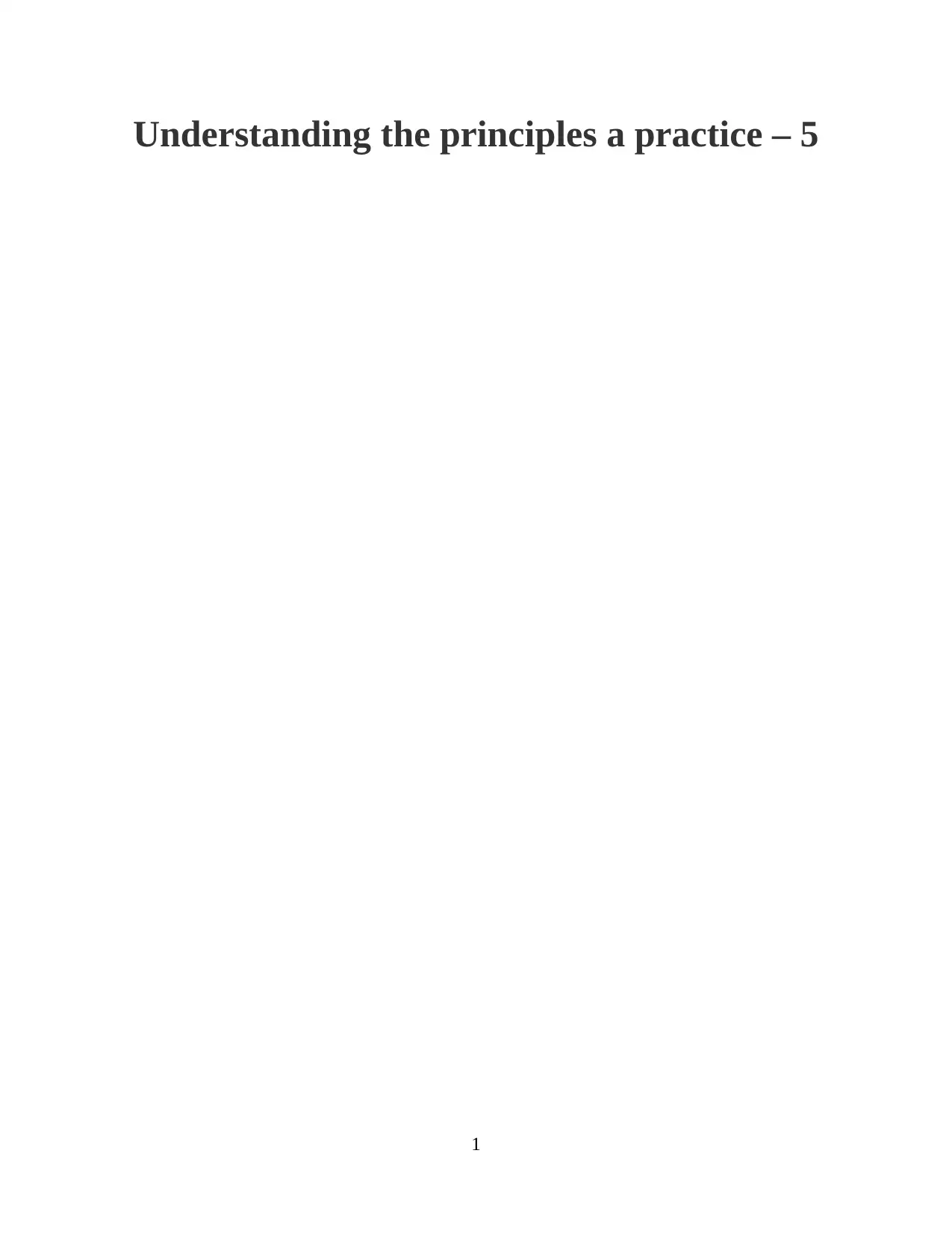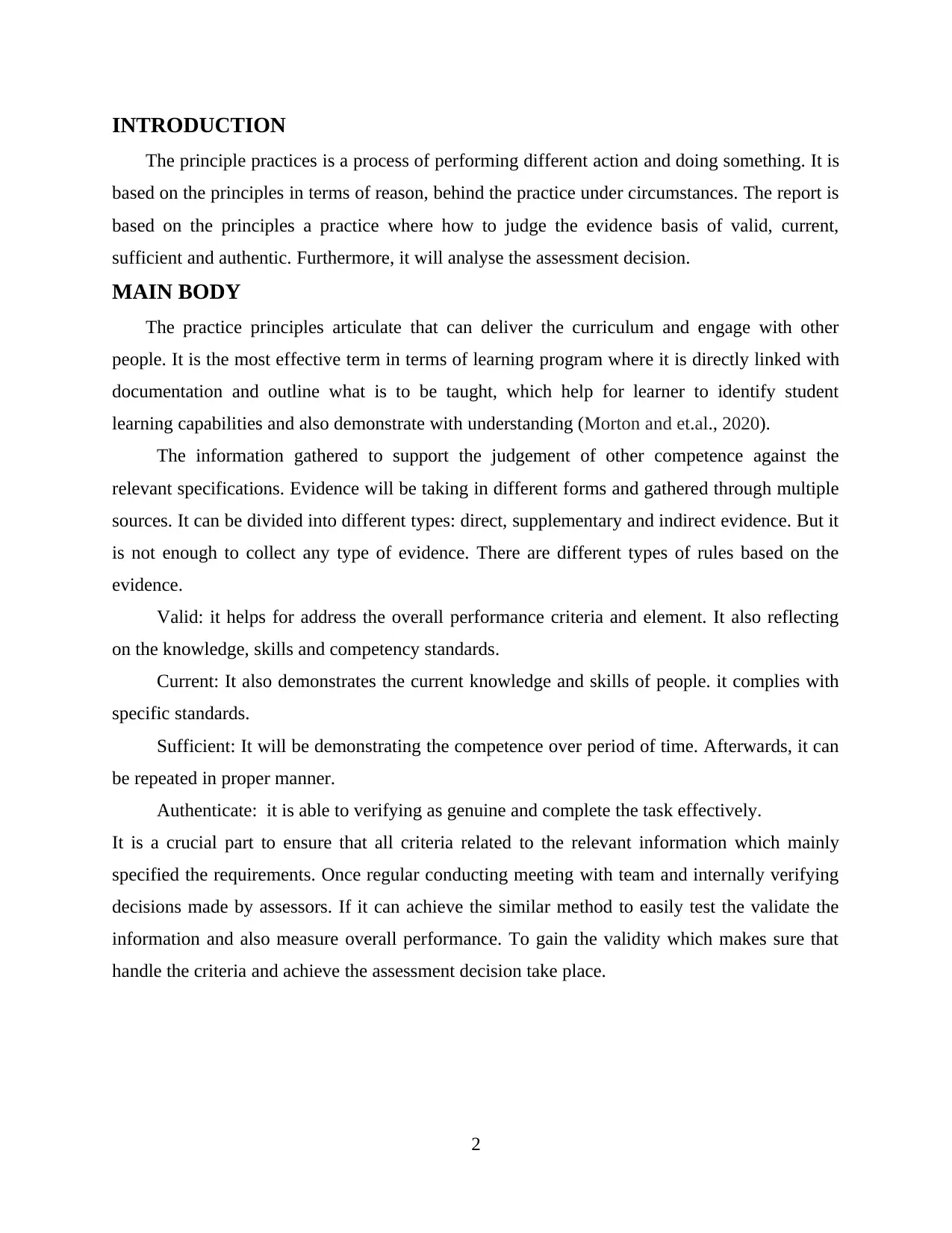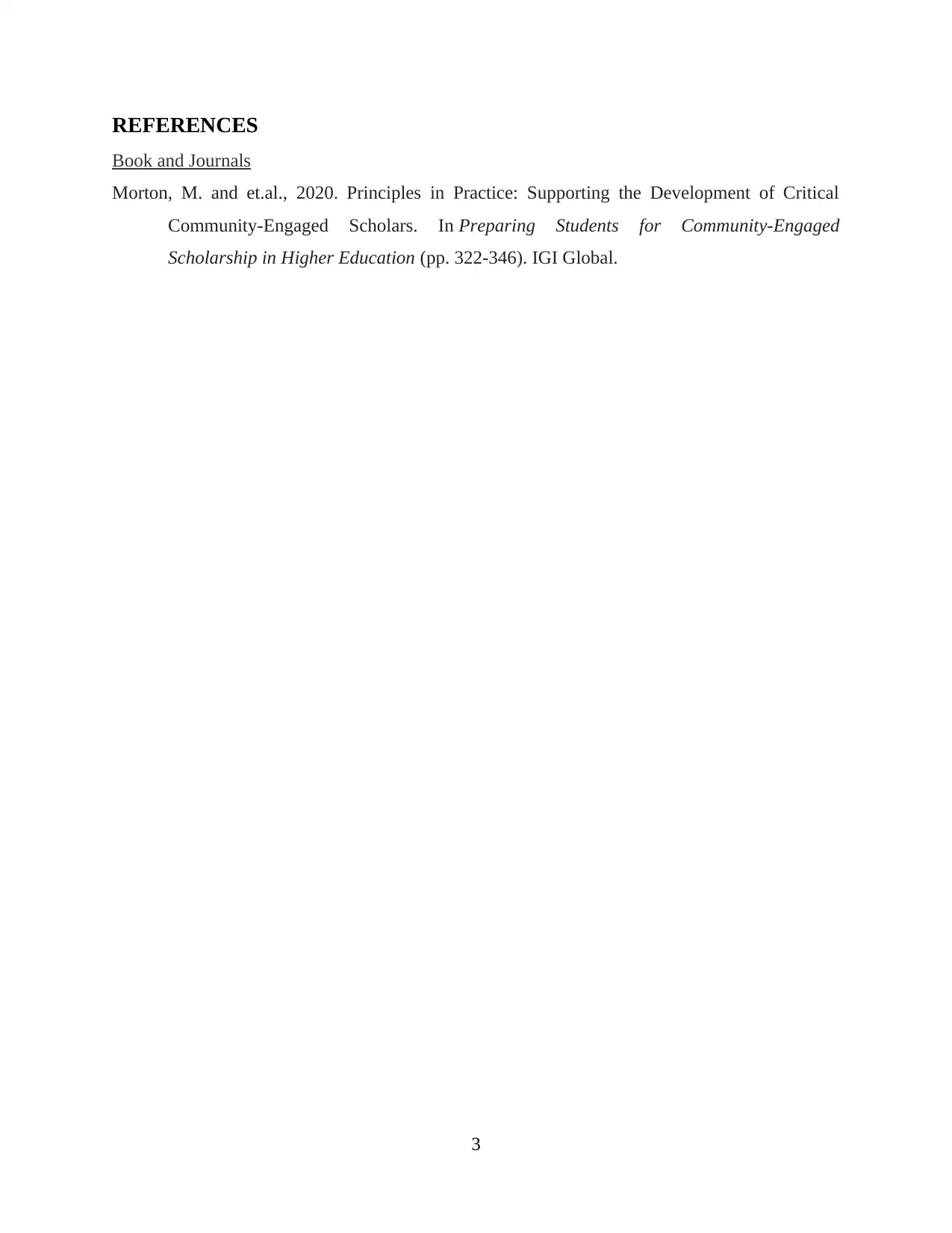Principles of Practice - Assessment Report Analysis and Review
VerifiedAdded on 2023/01/13
|3
|405
|76
Report
AI Summary
This report delves into the principles of practice, specifically focusing on assessment methods and the importance of evidence. It discusses the significance of valid, current, sufficient, and authentic evidence in the assessment process. The report explores how these principles are applied to ensure that assessments accurately reflect a student's knowledge and skills, aligning with established competency standards. It emphasizes the need for comprehensive and reliable evidence to support assessment decisions, ensuring the integrity and effectiveness of the learning process. The report also touches upon the role of verification and the importance of internal reviews to maintain the accuracy and reliability of assessments. The provided references support the concepts and principles discussed, offering a detailed understanding of the subject matter.
1 out of 3










![[object Object]](/_next/static/media/star-bottom.7253800d.svg)